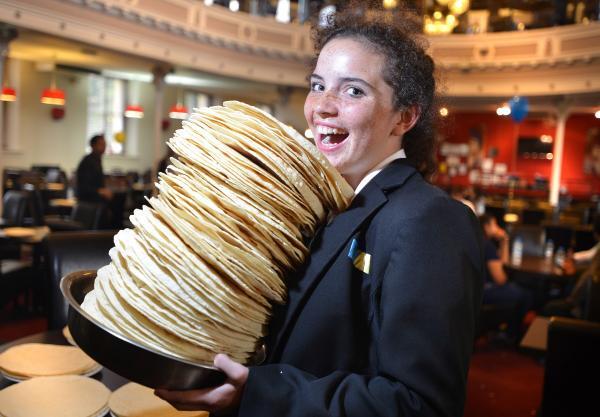17th National Curry Week 13-19 October 2014
Britain's annual celebration of curry is almost on us again with restaurants and curry fans planning events from poppodom speed eating contests and poppadomathons(a crispy, crunchy relay) to special dinners and curry quizzes in aid of charity.
Why this enthusiasm? Why this devotion?
It is hard to explain except that nearly 23 million of us enjoy the dish every year at over 9500 restaurants and at home munching our way through mountains of poppadoms and gallons of chicken tikka masala. Be it a restaurant, a takeaway, a supermarket or the fun of cooking from scratch, there is no sign of the continued enthusiasm for what is often called 'our national dish'.
Curry can even claim to be good for you given that the right dishes are eaten. Recent research has shown that curry ease arthritis and even protecting you from Alzheimer's.
Studies have found that garlic, cinnamon and cumin can destroy up to 80 per cent of meat-borne bacteria, while ginger can slow bacterial growth by 25 per cent.
Ginger could act as an effective pain reliever from the agony of arthritis. A study, carried out in the U.S. and presented at a recent British Medical Association conference, confirmed that two-thirds of those people involved in the study who were taking ginger supple-ments experienced a reduction in joint pain caused by arthritis.
Ginger is also a traditional cold remedy and contains the antioxidants gingerol, shagaol, and zingerone.
Curcumin is the primary active compound in turmeric which is found in curry powders, as well as being used neat in curries. A recent study from the U.S. found that eating turmeric can slow down the build up of plaques on the brain - the main cause of Alzheimer's - by up to 50 per cent. Turmeric has also been found to help with digestion as well as guard against heart attacks and cancer of the colon. Quite the little wonder drug. It also has strong anti-inflammatory properties.
Onions contain an agent called diallyl sulfide, which prompts the body to make more of the cancer-fighting molecule glutathione-S-transferase. These are a family of enzymes that play an important role in the detoxification of harmful stomach bacteria.
Garlic has been found to have a wide range of health benefits, from protecting the heart by lowering cholesterol to helping to purify the blood. It also contains allicin, which is a potent anti-cancer agent, and it increases protection from stomach cancer by promoting the production of protective enzymes in the stomach
White rice loses many of its healthy benefits in processing. However, it does contain phytic acid, which helps bind the mineral iron in the digestive system, letting the body absorb it easily. It is low in fat and an ideal muscle fuel.
On the negative side there are some items that are not so healthy. Poppadomsare more or less pure fat. They are deep fried and contain very little nutritional goodness. Although delicious, they are best avoided if you are trying to eat healthily or are watching your waistline.
Naan bread in Indian restaurants is generally not very healthy. The white flour used has had most of its nutrients stripped away and it has been drizzled with oil, so even a plain naan contains a staggering 300 calories.
Mango chutney contains high levels of vitamins, combats stomach acidity and is a good blood cleanser. But in chutney a great deal of sugar has been added and the processed mangos have lost many of their benefits
Not all curries are healthy of course. Avoid kormas, masalas and pasandas, which often contain frightening amounts of cream and the average chicken tikka masala, for example, contains about 1,500 calories.
Dishes such as rogan josh, madras, jalfrezi and sags (with spinach) tend to have less cream but just as many healthy spices.
National Curry Week was created to celebrate all things curry as well as raise money for the malnourished and starving. It is beloved of sportspeople, celebrities and even politicians - every reason to mark the occasion once a year when the nation's taste buds go wild.
ENDS
For further information:
Website : www.nationalcurryweek.co.uk
Telephone : 020 8399 4831
email : groveint@aol.com
Contact : Peter Grove - organiser
Press release distributed by Pressat on behalf of Pressat Wire, on Wednesday 17 September, 2014. For more information subscribe and follow https://pressat.co.uk/
Food & Drink
You just read:
17th National Curry Week 13-19 October 2014
News from this source:



